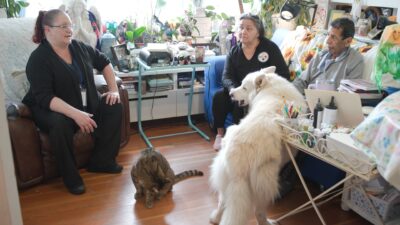Helen and her sister, Ellen, had both been widowed recently. In their grief, they turned to a community bereavement counselor at their local hospice program. Among other things, they reported they were perplexed by people who said things that weren’t at all helpful to them. For example, after her husband died, Helen was told by some people that how she must “forget him” and “just get over it.” Similarly, Ellen described people who advised her “to put a smile on her face” and “get right back to work.”
Both sisters insisted that they did not want to forget their husbands—“the loves of their lives,” they said. They were still grieving and did not feel ready to pretend that everything was hunky-dory. So why did people seem to ignore or override their grief and offer such unhelpful advice, they asked?
The counselor suggested that most people who said these types of things did not intend to be hurtful. They would insist that their advice was well meant. If asked to explain themselves, they would probably say they wanted those who are bereaved to get beyond the pain and reestablish a healthy, happy life.
Unfortunately, the counselor said, sometimes hurtful words are not motivated by good intentions. Others may encourage bereaved persons to hide their grief or get past it quickly, not for their own sake but for the sake of those around them. Saying something like, “You’re young and can always remarry,” sends a message to the bereaved that their loss is not all that important or powerful. Yet the person delivering the message thinks that this message actually lessens person’s pain and encourages hope. Those who urge the bereaved not to feel so bad are actually trying to minimize their exposure to another’s intense pain.
In the end, the bereavement counselor recommended to Helen and Ellen that they should recognize that they each have a legitimate need to experience their grief and they should let others know about their needs. The counselor advised Helen and Ellen to gently let others know that they needed to be given the time and freedom to experience, express, and find their own constructive ways to deal with their losses.
By Charles A. Corr, PhD, former chair of the International Work Group on Death, Dying, and Bereavement and recipient of the 2020 Lifetime Achievement Award from the Association for Death Education and Counseling.


